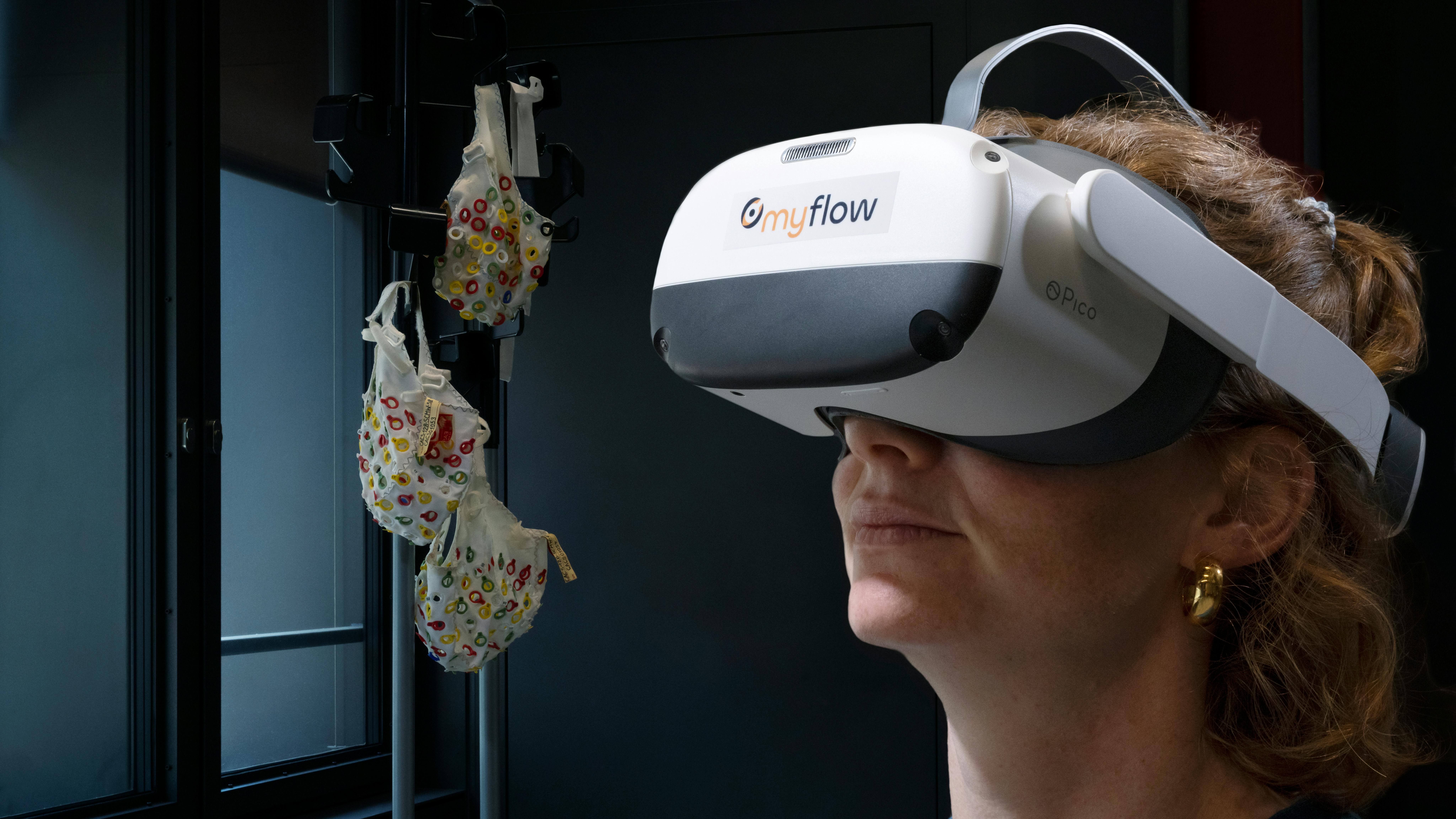
Contact
Prof. Dr. Birgit Kleim
Professor of Experimental Psychopathology and Psychotherapy at the University of Zurich
Head of the Psychology/Psychotherapy Service for Adult Psychiatry and Psychotherapy at the University Hospital of Psychiatry Zurich
+41 58 384 23 51
E-Mail
UMZH institutions
University of Zurich
ETH Zurich
University Hospital Zurich
University Hospital of Psychiatry Zurich
Team
Manuela* is one of 105 medical students who are participating as subjects in the «STRESS» project. The 25-year-old has already experienced many stressful situations while taking exams in the course of her studies. Now she is about to do her internship in an emergency room setting and will have to prove herself with real patients. How will she manage the stress? This is a question that Birgit Kleim is also interested in finding the answer to. She is Professor of Experimental Psychopathology and Psychotherapy at the University of Zurich and heads up the Psychology/Psychotherapy Service for Adult Psychiatry and Psychotherapy at the University Hospital of Psychiatry Zurich. She has long been interested in examining the phenomenon of stress from a scientific perspective, and has joined forces with Isabelle Mansuy, Professor of Neuroepigenetics at the University of Zurich and ETH Zurich, to run the «STRESS» research project, which was launched in 2022.
From animal models to long-term studies: A holistic view of stress
Within the STRESS project, more than ten research groups are collaborating across five sub-projects: Birgit Kleim is leading the prospective cohort study with the medical students, while Mansuy is researching stress and its long-term effects based on an animal model, and another group is examining the molecular RNA pattern. As part of a longitudinal study, one group from the human research area is studying stress during the Covid-19 pandemic and the interrelation between indicators associated with regulation of emotion in the brain and resilience over a person’s life.
Reducing stress with pupil feedback
Another group from the STRESS project is analyzing the connection between pupil size and how aroused the brain is. Our pupils dilate when we are stressed and narrow when we are calm. Previously, it was unclear whether information about pupil size can also be used indirectly to consciously influence the arousal centers in the brain. With suitable biofeedback, humans could learn to cope better with stress. Initial results from researchers show that this is actually possible, which could open up new possibilities in the treatment of stress-related conditions. VR glasses can be used to provide real-time feedback on pupil size and are therefore expected to feature widely in related studies in the long term.
Individual strategies for managing stress
Birgit Kleim’s group is also primarily concerned with researching strategies for managing stress. She describes the research with the student cohort – which includes Manuela – as a really valuable opportunity. «We were able to study and question the medical students before and during the stress to which they were exposed on the wards where they are completing their internship.» Kleim’s team tested the cohort for anxiety, symptoms of depression, psychosocial performance levels, and how they experience stress over a period of twelve months. Manuela also regularly filled out questionnaires, underwent MRI scans of her brain, and gave blood samples. «We are in the process of assessing the data gathered. Changes in individual health outcomes are of particular interest,» says Kleim. One thing is already clear: People respond differently when faced with similarly stressful situations. The researchers now want to find out what strategies the subjects adopt to manage stress, who is proving particularly resistant to stress, and who has really been struggling with stress.
Manuela, for example, has great respect for authority figures on account of her family background. Criticism from her superiors creates enormous stress for her. She processes this by talking about the situation with friends. One hypothesis put forward by the researchers is that people are more resilient to stress if they have already developed a number of strategies for combating it or come up with new tactics for dealing with it during stressful times. Kleim’s aim is to identify stress-reducing concepts in order to help people who are not very good at dealing with stress.
The various research groups of the STRESS project at a glance (graph)
Comparing stress in mice and humans
Animals such as mice also experience stress, and process it in a very different way. The researchers in Isabelle Mansuy’s group are comparing blood samples from Brigit Kleim’s student cohort with samples from mice. «Stress changes the concentration of biomarkers, and this is evident in both humans and the animal model,» says Isabelle Mansuy. People who interpret stressful situations as overwhelming and irresolvable will, for example, secrete more cortisol – a stress hormone that makes the heart beat faster, accelerates breathing, increases blood glucose levels, and boosts glucose uptake by muscle cells. Several areas in the brain are involved in stress responses, including the hypothalamus, the amygdala, and the locus coeruleus. The locus coeruleus plays an important role in regulating stress and emotional responses. Located deep inside the brain, this nucleus regulates arousal levels via the neurotransmitter noradrenaline.
«We have identified a certain degree of overlap between the findings in the animal model and those identified in humans,» says Isabelle Mansuy. As a result, as part of the STRESS project, those involved in basic research on the animal model are collaborating with researchers from the human area. This is what makes the project so special. «We can draw comparisons between animal and human physiology to help us understand how the human body works,» explains Kleim.
Stress as a risk factor for chronic conditions
It is fair to say that stress is not something negative per se and may even release new energy and promote alternative behaviors. It does become a problem, however, if someone is experiencing it all the time and may lead to sleep problems, high blood pressure, and back pain. Numerous other conditions are also associated with stress. One example is burnout, which is affecting more and more people every year. Stress is also a risk factor for chronic illnesses, including circulatory conditions, type II diabetes, or neurological conditions like dementia. The economic impact of stress in Switzerland is currently estimated at several billion francs. And the younger generation is affected too, with young people in Switzerland claiming (in surveys) that what they need, more than anything else, is to understand how to cope better with stress.
Research into the long-term consequences of stress
Isabelle Mansuy’s work with mice adopts an epigenetic approach and thereby provides insights into inheritance across generations. For example, the consequences of trauma can be passed on from one generation to the next. Mansuy’s team was able to uncover evidence of characteristic RNA patterns that are only shown by animals under stress. The fact that some of these patterns point to traumatic experiences – not just in mice, but also in humans – opens the door to further research into the long-term consequences of stress.
Looking further ahead, the researchers involved in the STRESS project are striving to achieve a paradigm shift in the current understanding of stress-related conditions. According to Mansuy, the research team is hoping for two things: «Firstly, we want to broaden our understanding of the complex phenomenon of stress, and secondly, we would like to put our knowledge into practice. The idea is to ensure that those who are really struggling with stress can get even better help in future.»
*Name has been changed
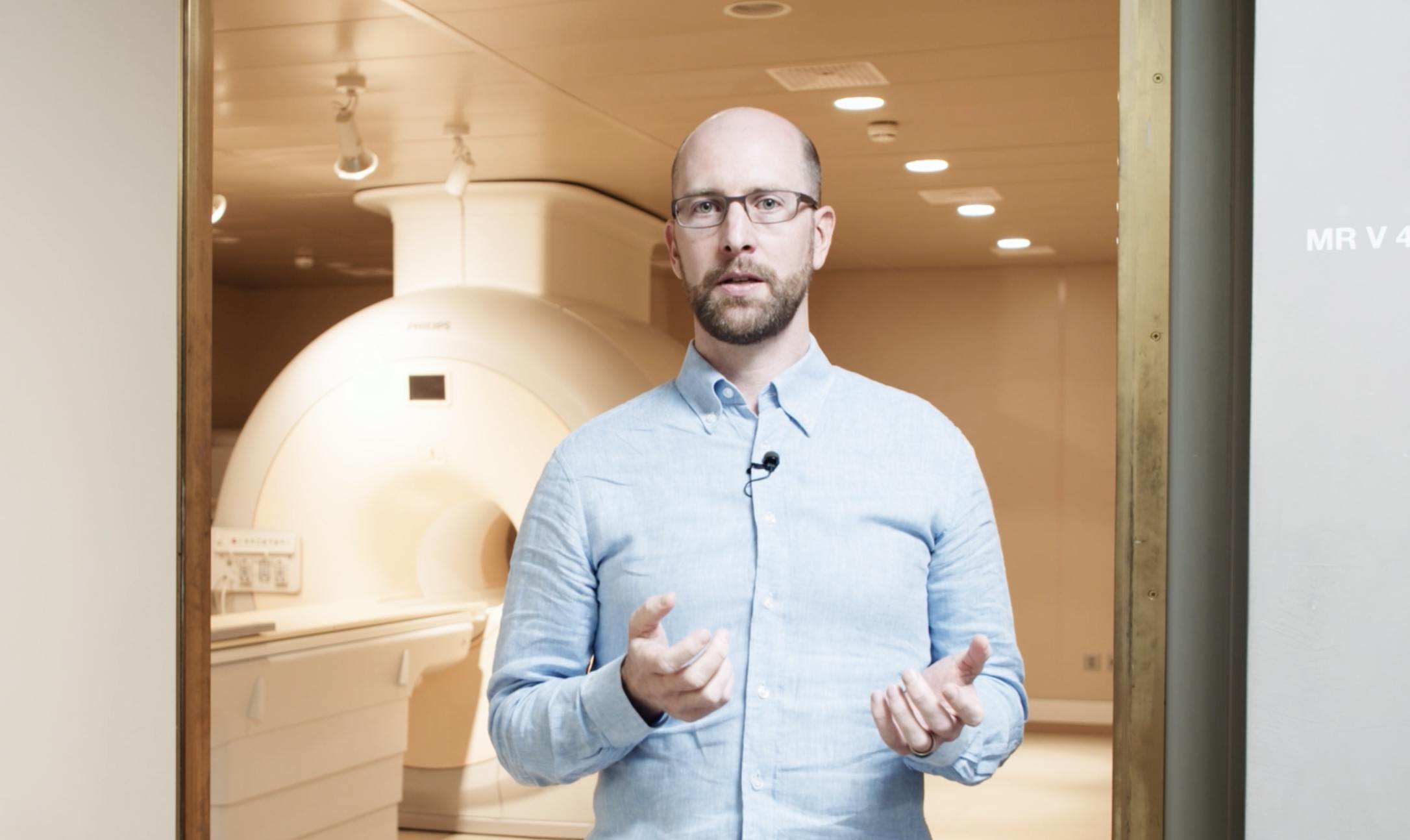
«Millions of people across all ages are influenced by stress which makes it a major health concern. Our goal in the STRESS consortium is to better understand risk and resilience to stress» says Todd Hare in the video. He is a professor for neuroeconomics and human development at the University of Zurich.
Service
University Hospital of Zurich:
Exercises to reduce stress
Treatments offered at the University Hospital of Psychiatry Zurich for stress-related disorders and burnout
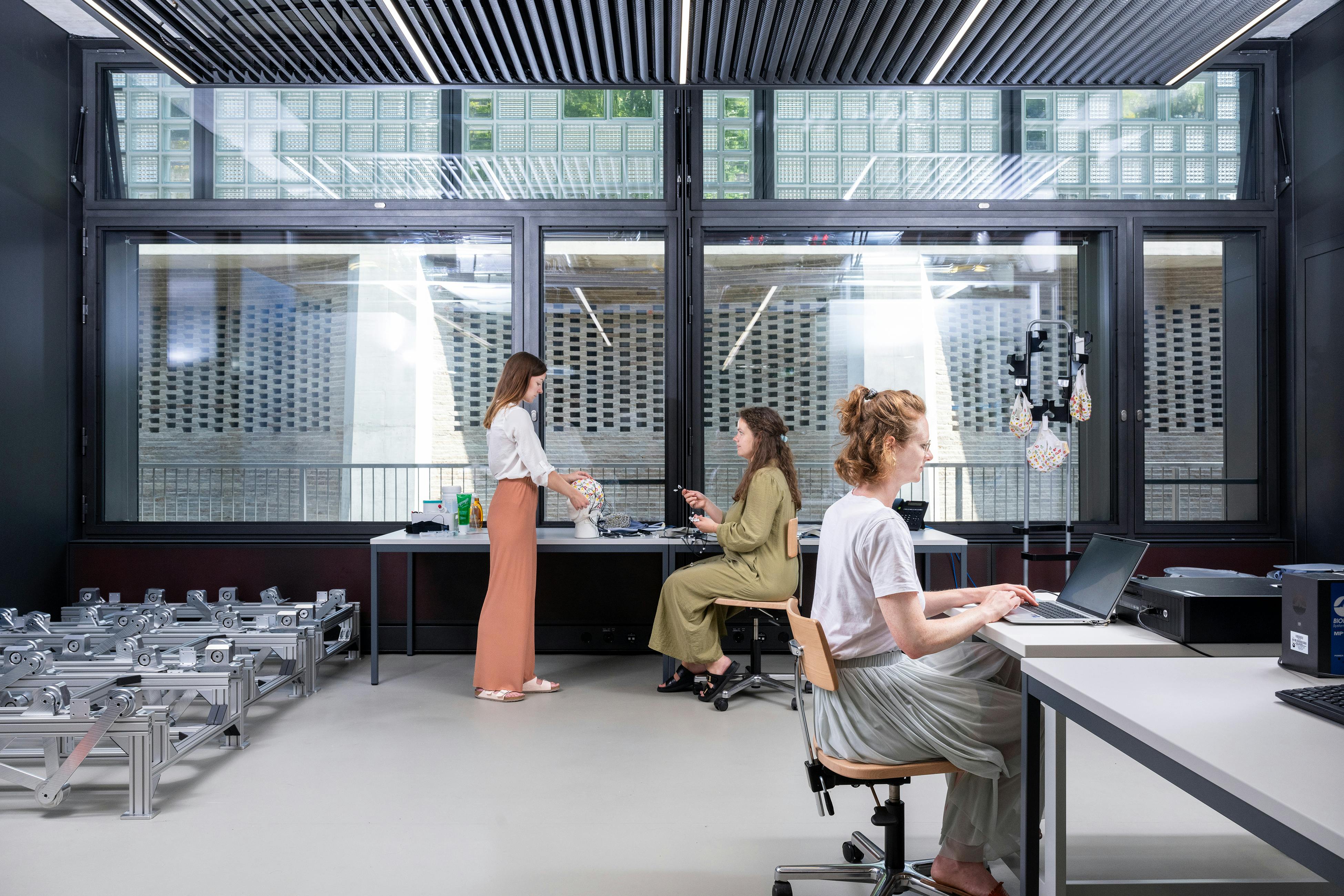
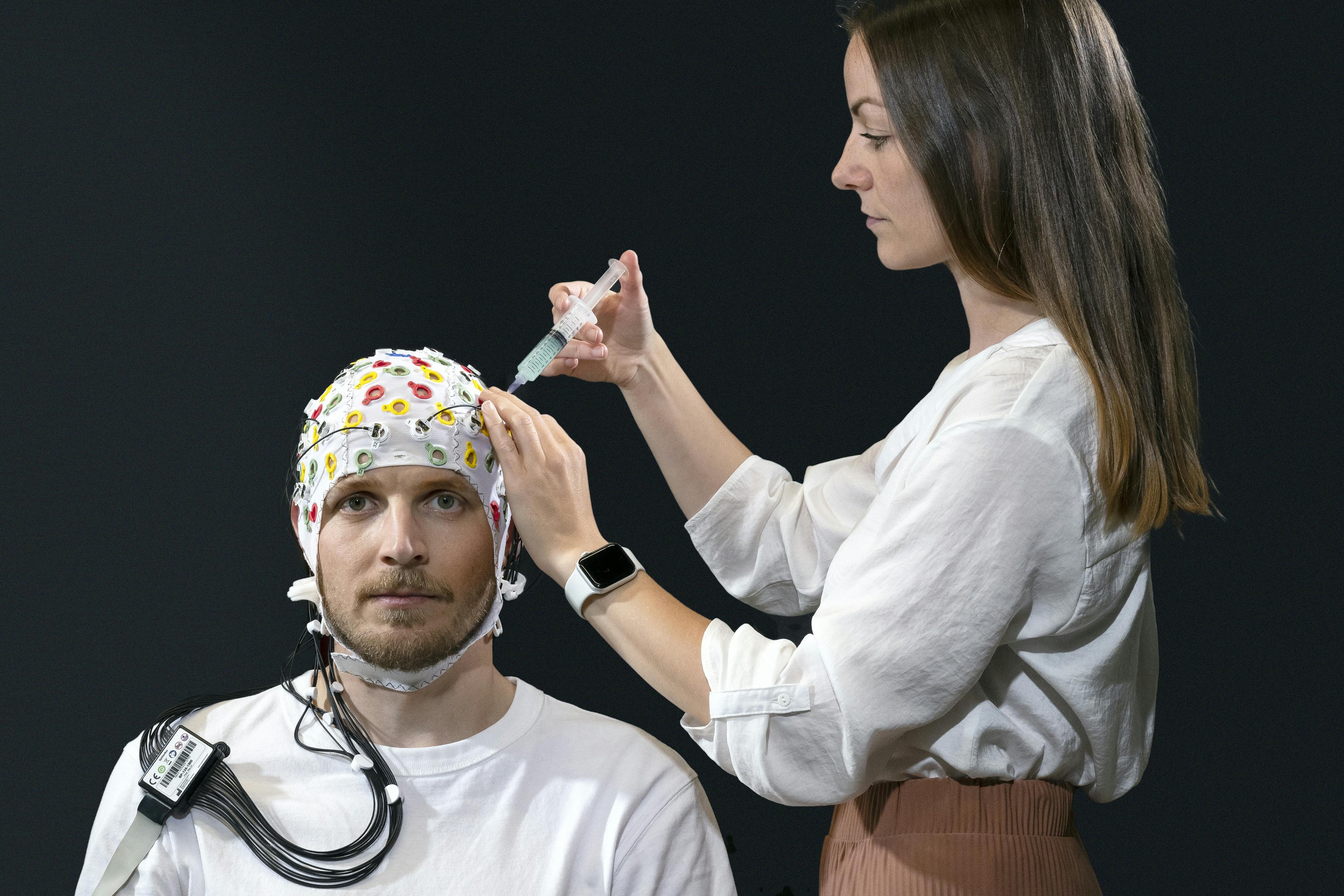
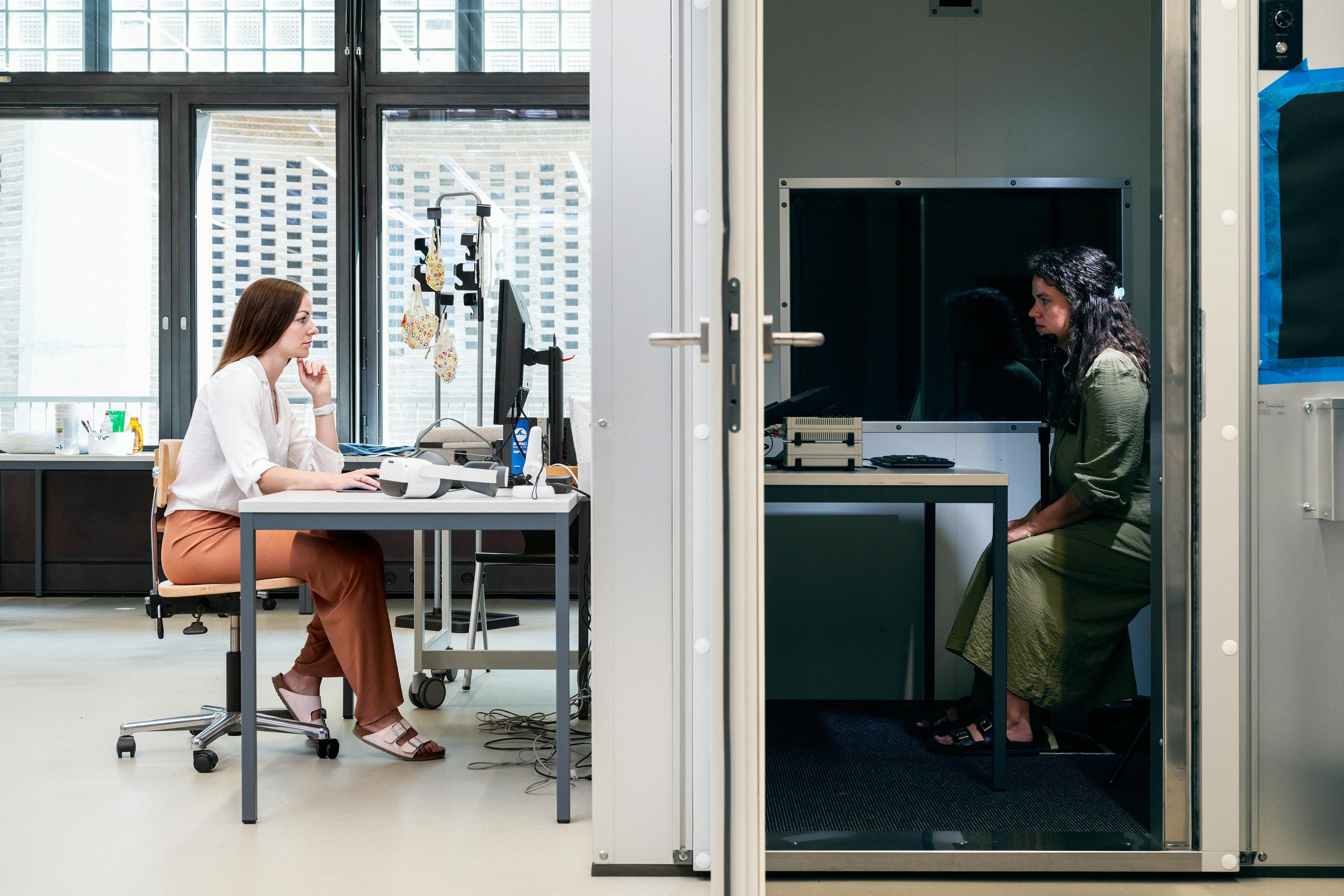




Glossary
Amygdala:
An almond-shaped structure that is part of the limbic structure in the brain. It regulates the expression of emotion; in particular, feelings of anxiety originate in the amygdala.
Biofeedback:
A method where humans learn to control their bodily functions by receiving visual or acoustic feedback.
Epigenetik:
An area of research that studies how environmental factors influence the activities of genes without altering the DNA sequence.
Hypothalamus:
A part of the midbrain that regulates autonomic and endocrine processes. For example, it controls things like respiration, circulation, body temperature, sexual behavior, and the intake of fluid and food.
Locus Coeruleus:
A small nucleus in the brain stem that plays an important role in the regulation of stress and emotional responses.
Who is co-financing this project? (in CHF millions)
Hochschulmedizin Zürich (HMZ)
Project funding
started in 2022
Credits
Text: Marita Fuchs
Pictures: Frank Brüderli
Video: Daniel Grunder
University of Zurich: Birgit Kleim, Isabelle Mansuy, Todd Hare, Urs Meyer, Erich Seifritz, Michael Shanahan
University Hospital of Psychiatry Zurich: Birgit Kleim, Erich Seifritz
ETH Zurich: Isabelle Mansuy, Nicole Wenderoth, Johannes Bohacek





